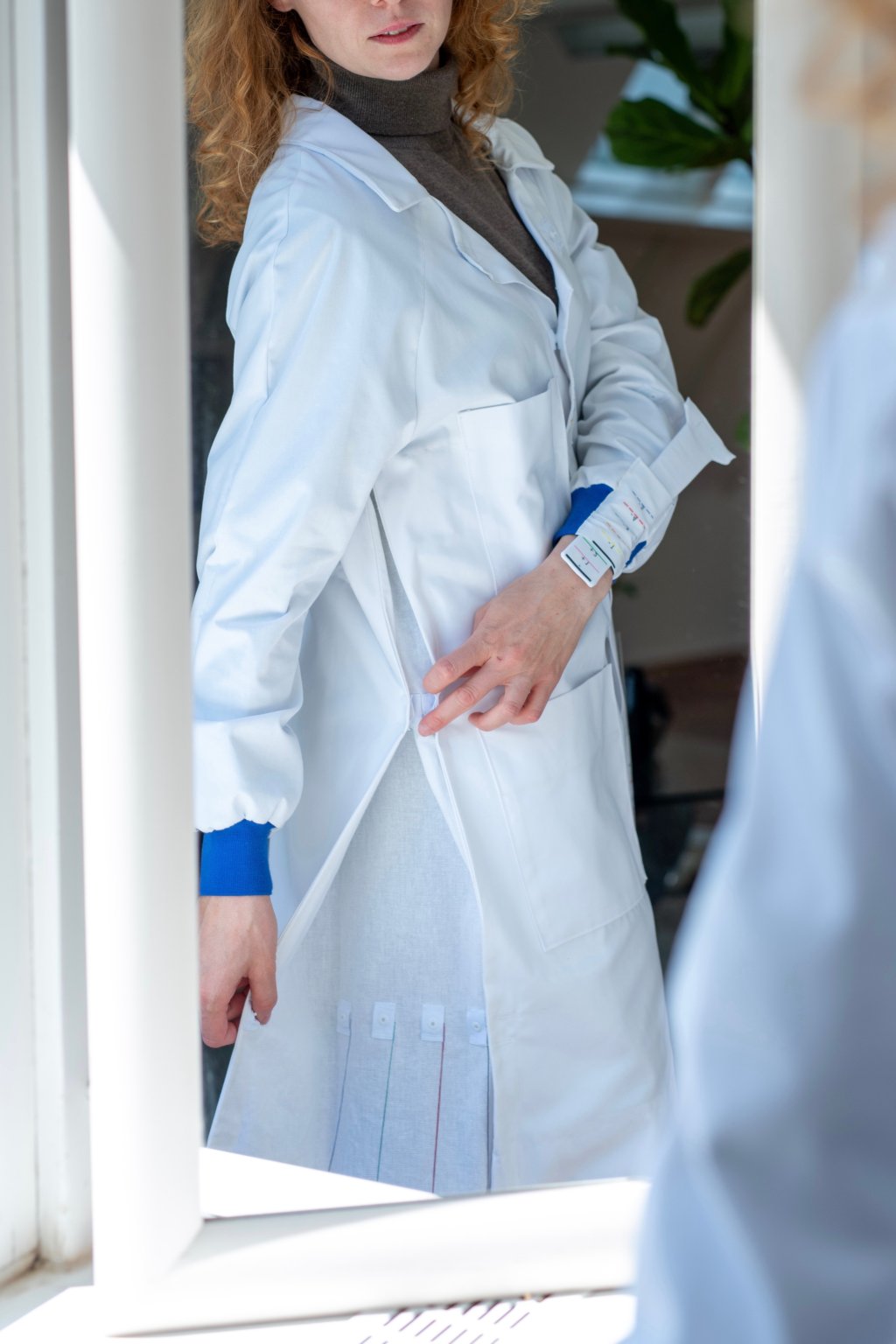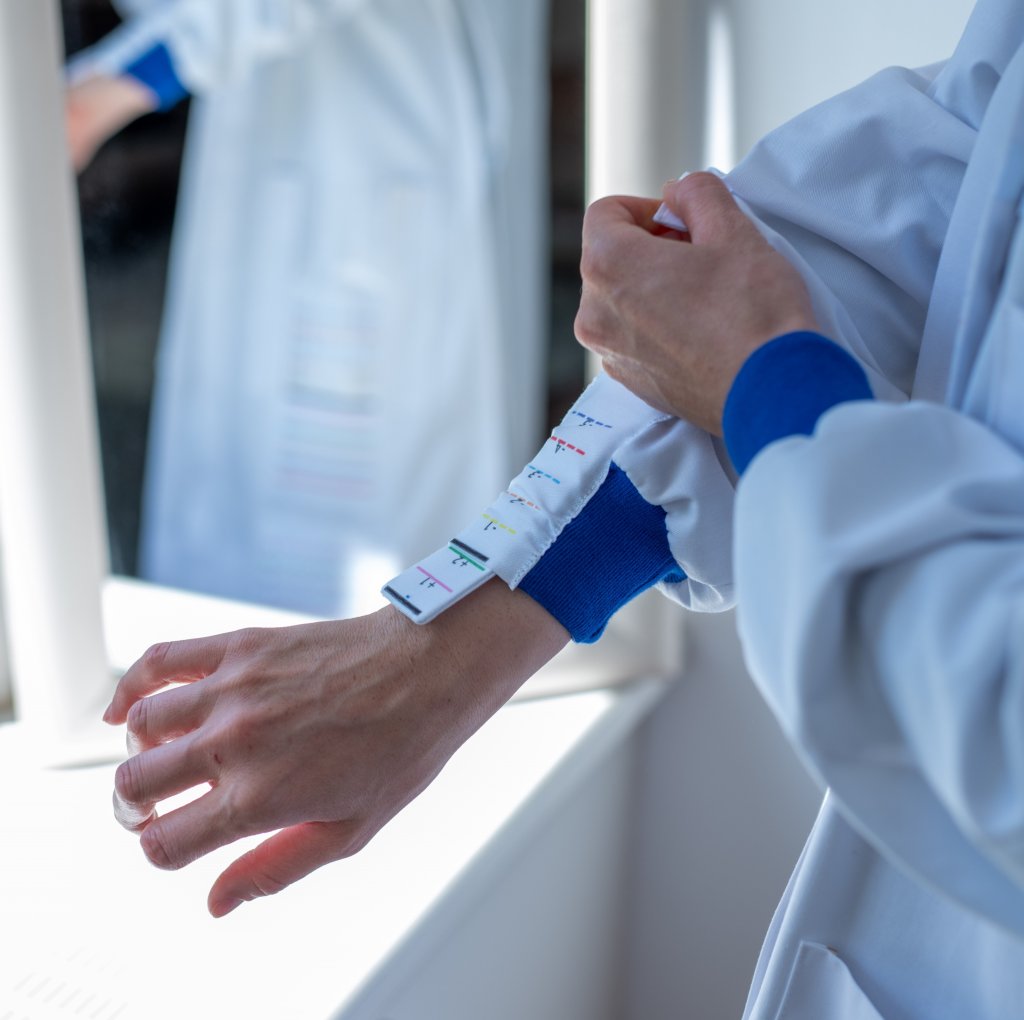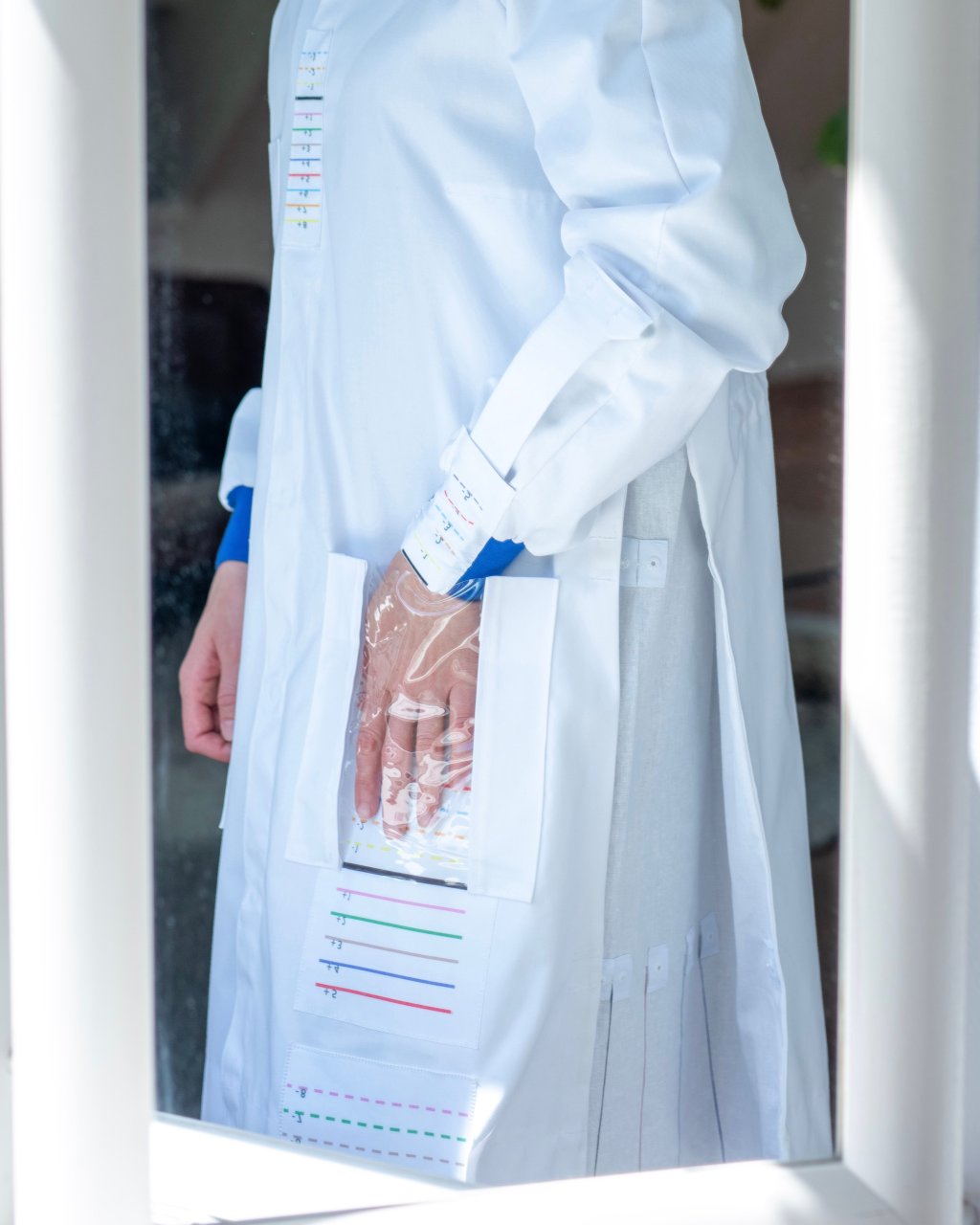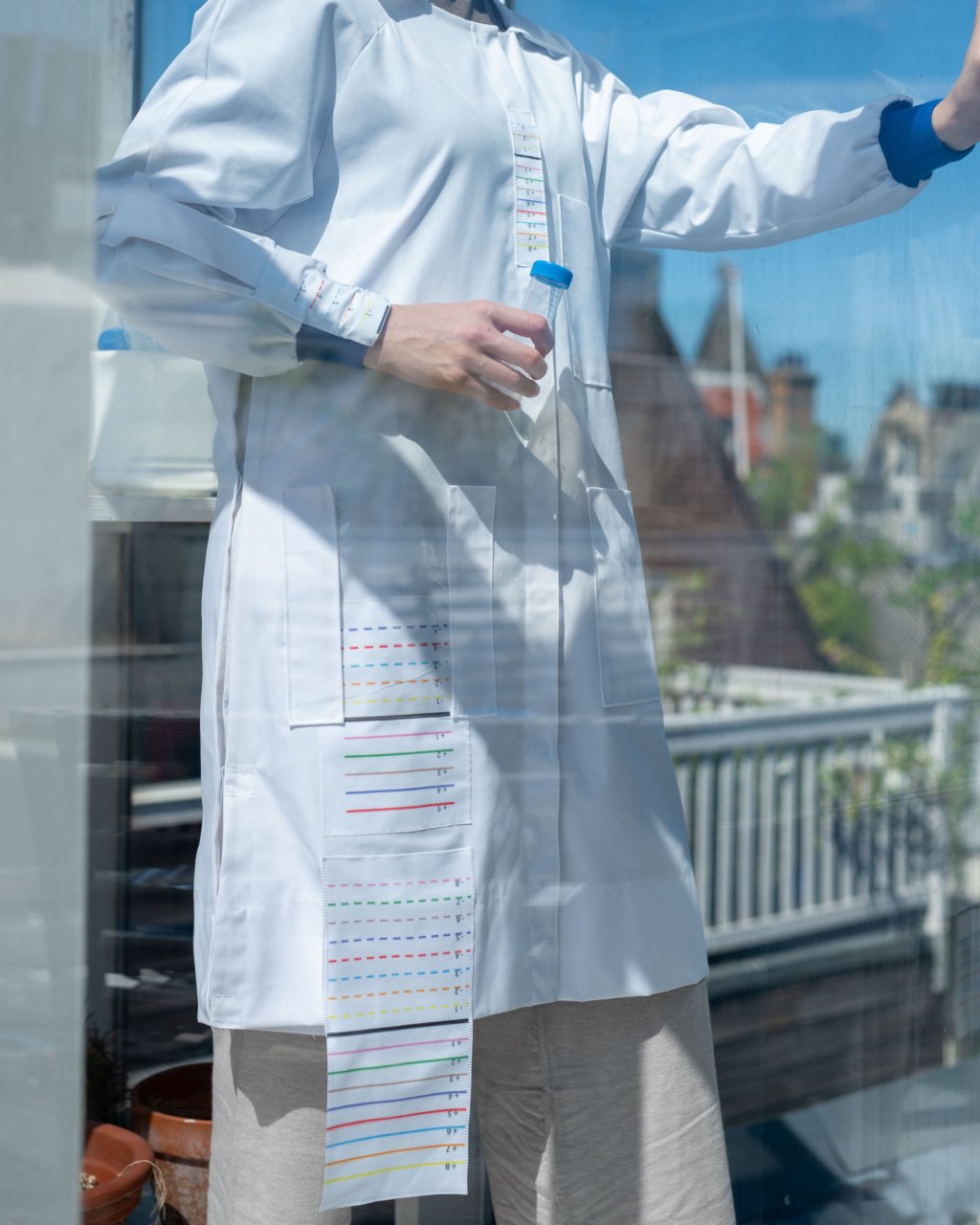Svetlana Mironcika
In collaboration with Joep Frens and Stephan Wensveen. With special thanks to Holly Krueger, Marina Toeters (Fashion Tech Farm), Kristina Andersen and Juliana Gomez
Mass-produced protective workwear often doesn't fit the wearer, affecting the level of protection, feeling of comfort, and productivity. Garment personalization is much needed for workwear to safely and comfortably support people with diverse body shapes in a variety of work contexts.
An important step for garment personalization is collecting the wearer’s body shape data which are then translated into the fit of the garment. To deal with people's privacy concerns regarding digital technologies supporting gathering personal data such as 3D body scanning, we propose an embodied approach for self-fitting. Specially designed garments allow people to self-measure, find the best fit, and immediately experience the fit of a personalized garment. This process of self-fitting helps gather 'fit data' to digitally fabricate personalized garments - an approach termed ultra-personalization.
In this project, we explored and prioritized the design of a garment for embodied self-fitting for women’s bodies, as most Personal Protective Equipment is designed for men, ignoring the needs of women for safety and comfort.
Well-fitting workwear is important for everyone and ultra-personalization aims to make inclusive products. Recognizing this, we chose to first focus on designing for women’s bodies as currently, most Personal Protective Equipment (PPE) is designed for the male body, and does not fit women well. A 2024 survey by the Women’s Engineering Society (UK) found that women are being ignored when it comes to providing safe and effective PPE; only 26% of women reported their protective equipment to be comfortable and well-fitted. Second, there are privacy concerns regarding digital tools for garment personalization such as 3D body scanning as they require information on body geometry that can be perceived by some people as being highly private data.
Moreover, research tells us that the body scanning process can be perceived as “shocking”. Therefore, it's necessary to offer people more diverse tools that don't require sharing personal body-related data. 'Tools for embodied' allows garment personalization without collecting this precise information, and for this reason, we see them as being more inclusive.








